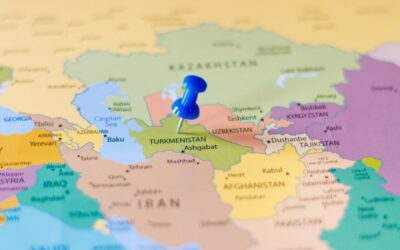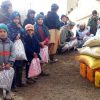
UN Reports Dire Food Insecurity Affecting Nearly 16 Million Afghans
18 April 2024
The latest report from the United Nations Sustainable Development Group indicates a dire situation in Afghanistan, with approximately 15.8 million individuals facing severe food insecurity, classified at crisis and emergency levels.
The majority of the Afghan populace grapples with meeting essential requirements such as healthcare, sustenance, livelihoods, and shelter. Data sourced from the World Bank underscores this predicament, revealing that roughly 80% of Afghan households subsist on less than $1 per day per member. Projections for 2024 paint an even bleaker picture, with an anticipated increase to 17.2 million Afghans experiencing crisis and emergency food insecurity conditions. Furthermore, UN agencies encounter heightened obstacles in delivering aid due to escalated restrictions imposed by the Taliban, particularly concerning the rights of women and girls to education and employment. Since August 2021, the Taliban have issued over 50 decrees targeting women and girls, alongside provincial-level measures constraining their fundamental liberties. Similar constraints were imposed on female Afghan UN employees in April 2023, echoing restrictions from December 2022 on women affiliated with non-governmental organizations. In response, the UN and its collaborators reaffirm their commitment to upholding principled approaches, acknowledging the indispensable role of Afghan women and girls not solely as beneficiaries but as catalysts for positive change in fostering an inclusive and prosperous Afghanistan.
The UN underscores the pivotal role of women in aid design and delivery, emphasizing meaningful engagement by women-led and women’s rights organizations to ensure equitable access to assistance. The organization remains steadfast in its dedication to employing female Afghan personnel and cultivating a diverse workforce reflective of Afghan society.
The report also sheds light on the mass repatriation of Afghan refugees by Pakistan, highlighting the escalating challenges faced by Afghans residing in Pakistan. According to the International Organization for Migration, approximately 80% of returnees are women and children, often compelled to abandon their possessions and savings. The report delves into the implementation of Pakistan’s Illegal Foreigners’ Repatriation Plan (IFRP), which has resulted in the forced return of hundreds of thousands of Afghans under precarious circumstances. Additionally, the report underscores the significant impact of media closures in Afghanistan, revealing that over half of pre-August 2021 media outlets have ceased operations. To address the needs of the Afghan media community and bolster their resilience and sustainability, UNESCO convened a coordination meeting in Brussels in November 2023.
there is not post in layout 2

Pakistani and Iranian Leaders Commit to Strengthen Cooperation in Combating Militancy Originating from Afghanistan
Pakistan and Iran, neighboring nations with a lengthy and permeable...














